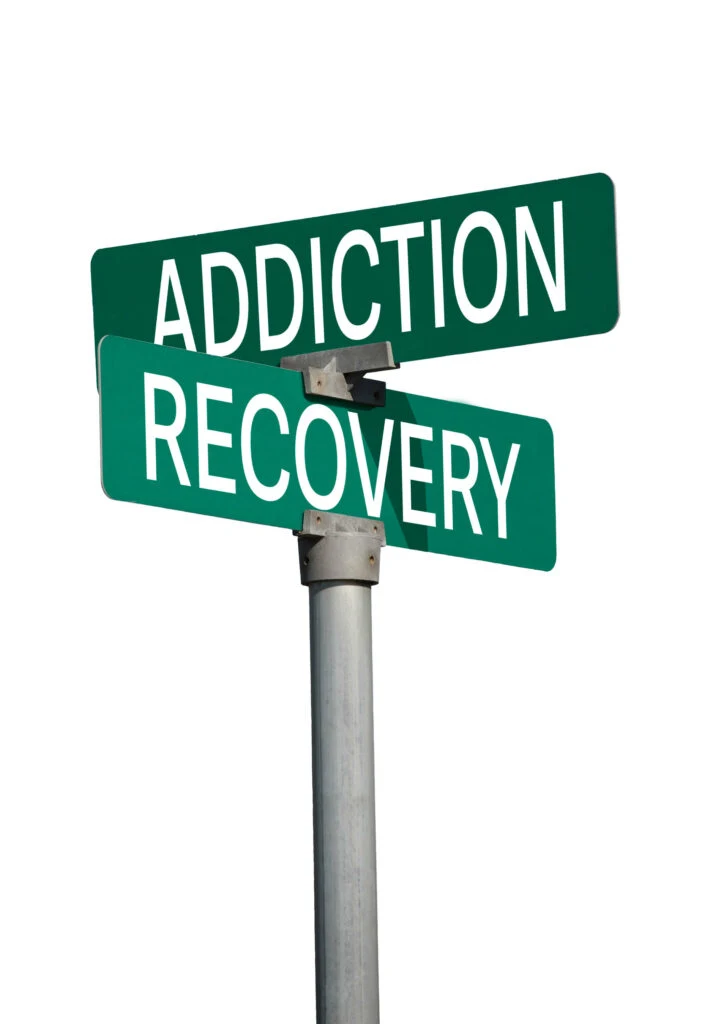When a loved one is battling an opioid addiction, it can be incredibly difficult for families. As caregivers, family members often feel helpless watching their child, sibling, spouse, or parent struggle with this disease. However, families play a critical role in successful addiction recovery. With understanding, compassion, and practical support, loved ones can provide the encouragement needed for someone to commit to treatment and maintain long-term sobriety.
In this practical guide, we will explore strategies to support a loved one through the arduous journey of opioid recovery.

1. Education Is Empowerment
Understanding opioid addiction is the first step in gaining a more profound knowledge of what opioid addiction entails. Opioids, encompassing both illegal substances like heroin and prescription medications such as morphine and oxycodone, interact with brain receptors to induce pleasure and reward.
Prolonged use leads to reduced natural neurotransmitter production, fostering increased drug dependence and compulsive use despite detrimental consequences to health, work, and relationships—an unmistakable sign of addiction and an opioid use disorder.
Second to understanding opioid addiction is to learn the nuances of addiction recovery. Families should educate themselves about opioid addiction’s impact on individuals and the potential challenges that may arise during the recovery process.
For instance, learning about the role of medication-assisted therapy and recognizing potential withdrawal symptoms helps families provide informed and empathetic support. Families can learn effective communication strategies to foster a supportive environment by attending counseling sessions. Understanding the signs of potential relapse through educational resources can also help families proactively address challenges while gaining insights into available treatment options that enable them to advocate for the most suitable and comprehensive care.
Also, families can gain insights into addiction recovery, enabling them to actively participate in the treatment process and contribute to a more conducive environment for their loved one’s recovery. By grasping the intricacies of the addiction, family members can better appreciate the challenges their loved ones face. This understanding fosters a supportive environment that is essential for successful addiction recovery.
2. Open Lines of Communication
Creating a safe and non-judgmental space for open communication is vital. Inspire your loved one to express their feelings, experiences, and concerns. Honest conversations can help strengthen the bond between family members and the individual undergoing addiction recovery.
Expressing concern without judgment allows the individual to share their struggles, fostering an atmosphere of trust. This open dialogue is instrumental in addressing issues as they arise and ensuring that everyone involved is on the same page regarding the recovery journey.
Families can also attend family therapy sessions together, where a professional facilitates constructive dialogue and helps identify and solve underlying issues that contribute to the addiction. Lastly, encouraging the use of communication tools such as journals or daily check-ins can further enhance transparency and trust within the family dynamic.
3. Professional Guidance and Support
Seeking professional help is vital in supporting a loved one through opioid addiction recovery. Addiction specialists, therapists, and support groups play pivotal roles in providing insights, guidance, and a network of support.
Addiction rehabilitation often involves complex medical and psychological processes.
Professionals offer customized guidance and strategies to navigate the challenges, ensuring a comprehensive and effective approach to recovery. Additionally, attending family therapy sessions can help address the impact of addiction on the entire family unit, fostering understanding and healing.
4. Encouraging and Facilitating Treatment
Supporting your loved one in seeking and maintaining professional treatment is a cornerstone of aiding their recovery. Treatment may include detoxification, counseling, and medication-assisted therapy. Treatment plans should be individualized, addressing the unique needs and circumstances of the person in recovery.
Family members are crucial in ensuring their loved one stays engaged with their treatment plan and receives the necessary support to overcome obstacles. Assisting with practical aspects, such as transportation to treatment centers or helping manage medication schedules, demonstrates a tangible commitment to their loved one’s recovery journey. Providing emotional encouragement during challenging moments and celebrating milestones, like completing a specific phase of treatment, reinforces the family’s role in fostering a supportive environment.
5. Establishing Healthy Boundaries
While providing support, it’s essential to set clear and healthy boundaries. These boundaries protect both the individual in recovery and the family members. Communicate expectations and consequences regarding the recovery journey and consistently enforce these boundaries.
Boundaries may include expectations for behavior, responsibilities, and the consequences for violating established agreements. Setting and maintaining these boundaries helps create a stable and supportive environment, reinforcing the importance of personal responsibility in the recovery process.
6. Emotional Support Matters
Providing robust emotional support is a cornerstone in assisting a loved one through the arduous journey of addiction rehabilitation. A compassionate and understanding approach, acknowledgment, and celebration establish a resilient foundation for their emotional well-being and strengthen family bonds.
Key Strategies:
- Active Compassion: Families provide a listening ear without judgment, offering empathetic responses and demonstrating a genuine understanding of their loved one’s experiences during addiction rehabilitation. This involves being emotionally present, validating feelings, and expressing support through verbal and non-verbal cues.
- Acknowledgment And Celebration: Acknowledge the efforts and commitment of their loved ones by expressing genuine pride in their progress during their recovery journey. Recognize and celebrate small victories and significant milestones to boost confidence and foster a sense of accomplishment.
- Reward System Implementation: Create and implement a system of rewards for achieving specific goals, reinforcing positive behaviors, and maintaining a supportive environment.
- Consistent Progress Recognition: Consistently recognizing and celebrating progress is crucial for building self-esteem, fostering resilience, and countering the stigma often associated with addiction. This approach contributes to a more optimistic outlook on the recovery process.
7. Foster A Supportive Environment
Creating a supportive environment is vital to a successful opioid addiction rehabilitation journey. This involves not only individual family support but also engaging the broader community. Attending support group meetings together, connecting with other families going through similar experiences, and sharing insights and coping strategies are activities that families can add to their schedules.
Families can engage in community activities to support their loved one’s opioid recovery. Some examples include:
- Community Outreach Programs: Participating in or organizing outreach programs focused on addiction awareness and recovery can contribute to community education and support.
- Awareness Campaigns: Collaborating with local organizations to organize awareness campaigns about opioid addiction helps reduce stigma, increase understanding, and promote empathy within the community.
- Healthcare Provider Collaboration: Working closely with local healthcare providers to host informational sessions or workshops on opioid recovery and available resources enhances community knowledge and support.
- Peer Mentoring Programs: Families can participate in or initiate peer mentoring programs where individuals who have successfully navigated opioid recovery share their experiences and insights with those currently undergoing the process.
- Recreational and Social Events: Organizing or participating in recreational and social events within the community fosters a sense of connection and support beyond the context of addiction, promoting overall well-being.
- Crisis Intervention Training: Families can undergo crisis intervention training to handle better challenging situations and emergencies related to opioid addiction within the community.
By fostering a supportive community, individuals in recovery feel less isolated and are more likely to stay motivated. The understanding and encouragement from family, community, and community engagements can be a powerful source of strength during challenging times.
8. Promoting Healthy Lifestyle Changes
Encourage and support healthy lifestyle changes to complement addiction recovery efforts. Physical well-being is intertwined with mental health; adopting positive habits can contribute to a more robust recovery process.
Promote regular exercise, proper nutrition and wellness plans, and sufficient sleep. Each factor contributes to overall well-being and can help manage stress and improve mood, which are crucial elements in addiction rehabilitation. Encouraging positive lifestyle changes reinforces the holistic nature of recovery.
Encourage healthy lifestyle changes, such as engaging in regular physical activities or preparing nutritious meals as a family. By actively participating in these positive habits, families provide practical support and contribute to the overall well-being and mental health of their recovering loved one. Additionally, discussing and planning these lifestyle changes reinforces a sense of unity and shared commitment to a healthier future.
9. Encourage Skill Development and Hobbies
Recovery involves more than abstaining from substance use; it’s also about building a fulfilling and meaningful life. Encourage your loved one to explore and develop new skills or rediscover old hobbies. This not only provides a sense of purpose but also helps fill the void left by addiction.
Engaging in tasks that bring joy and fulfillment can be a powerful motivator during recovery. It also serves as a positive outlet for stress and emotions, reducing the likelihood of returning to unhealthy coping mechanisms.
- Art Therapy: Engaging in art activities, such as drawing, painting, or sculpting, can be therapeutic for individuals in opioid recovery. Art allows for creative expression, providing a constructive outlet for emotions and contributing to overall mental well-being.
- Music As a Skill: Learning to play a musical instrument or participating in music therapy can be beneficial during recovery. Playing an instrument or creating music provides a positive and absorbing activity that fosters a sense of achievement and contributes to emotional healing.
- Gardening: Cultivating a garden can be a therapeutic and fulfilling skill. Growing plants provides a sense of responsibility and a connection to nature, contributing to mental well-being.
- Coding or Programming: Acquiring skills in coding or programming introduces a challenging and intellectually stimulating activity. Online courses and resources make it accessible, offering a productive and goal-oriented pursuit.
10. Staying Informed About Relapse Prevention
Relapse is a common concern during addiction recovery. Families should educate themselves about potential triggers and warning signs of relapse. Understanding these factors helps family members provide timely support and intervention.
Work with addiction specialists and counselors to develop a relapse prevention plan. This plan should include strategies for identifying triggers, coping mechanisms, and steps to take in case of a potential relapse. Having a proactive approach to relapse prevention is crucial for sustained recovery.
11. Address Co-Occurring Issues
Many individuals with opioid addiction may also struggle with co-occurring mental health issues. Addressing these issues alongside addiction rehabilitation is crucial for comprehensive treatment. Work with mental health experts to determine and manage any underlying mental health conditions.
By taking a holistic approach to treatment, families can help their loved ones address the root causes of addiction and establish a foundation for lasting recovery. This may involve therapy, counseling, and, if necessary, medication to manage mental health symptoms.

Parting Thoughts: Recovering As One Family
Assisting a family member in opioid addiction recovery is a challenging yet essential endeavor. By combining education, open communication, professional guidance, treatment support, healthy boundaries, emotional assistance, lifestyle promotion, a supportive environment, relapse prevention, skill development encouragement, and co-occurring issue addressing, families can create a comprehensive and effective support system.
Addiction recovery is a journey that demands patience, understanding, and unwavering support from those closest to the individual. Through these strategies, families can play a pivotal role in aiding their loved ones navigate the path to sobriety, fostering a sense of hope, resilience, and lasting recovery. Addiction recovery is not just an individual endeavor; it’s a collective effort that involves the entire family working together toward a healthier and happier—one—family.

Jessi is the creative mind behind The Coffee Mom, a popular blog that combines parenting advice, travel tips, and a love for all things Disney. As a trusted Disney influencer and passionate storyteller, Jessi’s authentic insights and relatable content resonate with readers worldwide.
